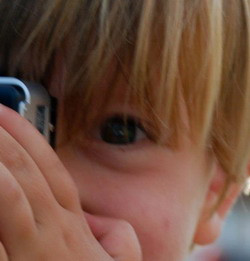Three of New Zealand’s talented, up-and-coming eye researchers will each receive up to $500,000 from the Health Research Council of New Zealand (HRC) to develop exciting new therapies for debilitating eye conditions such as cataracts and diseases of the cornea.
The trio and 11 other researchers have collectively been awarded more than $4.3 million through the HRC’s 2014 Career Development Awards programme. The HRC has also awarded a further 19 awards in the area of Māori health (worth a total of $1.5 million) and 10 awards for Pacific health research (worth a total of $1.09 million).
Eye surgeon and clinician Associate Professor Dipika Patel from The University of Auckland will use her HRC Clinical Practitioner Research Fellowship to further develop a new scaffold that could become a substitute for human corneal tissue. Ultimately, the scaffold would replace human donor corneas in transplant operations.
Donor corneal tissue is a limited resource in most countries. The current waiting time for cornea transplantation in New Zealand is more than a year. In many other countries, donor corneal tissue isn’t available.
“The development of a suitable tissue substitute would have a dramatic effect on reducing waiting times for surgical treatment and may enable treatment of corneal diseases that are not currently suitable for transplantation,” says Dr Patel.
If successful, she says this work will open up a wide range of avenues in the field of tissue engineering and reconstructive surgery.
Dr Angus Grey from The University of Auckland has received a Sir Charles Hercus Health Research Fellowship to tackle cataracts, the world’s most preventable form of blindness. Dr Grey will use his expertise in imaging mass spectrometry to discover what role small molecules and metabolites (substances produced during metabolism) play in the development of cataracts.
Each year some 16,000 cataract surgeries are performed in New Zealand.
Dr Grey says the research will provide the information needed to develop novel anti-cataract therapies that use nutritional supplements to delay the progression of the cataract on the eye’s lens.
University of Auckland eye specialist Dr Ilva Rupenthal plans to use her Sir Charles Hercus Health Research Fellowship to develop biodegradable eye implants that can slowly release medication for eye diseases over up to six months. Non-invasive laser light passed through the cornea will activate the implants to provide top-up doses of medication.
“These awards are a fantastic opportunity to help some of New Zealand’s best and brightest become world-class leaders in their fields, and to translate cutting-edge research from bench to bedside,” says HRC Chief Executive Dr Robin Olds.
See below for a list of all the HRC Career Development Award recipients (general category). You can also check out our research repository for details on the award recipients, including those who have received an award in the areas of Māori and Pacific health.
HRC Career Development Awards 2014 (general category)
Sir Charles Hercus Health Research Fellowship
Dr Angus Grey, The University of Auckland
Spatially-resolved metabolomics of cataractogenesis
4 years, $500,000
Dr Ilva Rupenthal, The University of Auckland
Stimuli-responsive ocular implants: More than meets the eye?
4 years, $425,000
Clinical Practitioner Research Fellowship
Dr Peter Bergin, Auckland District Health Board
Use of EpiNet platform for clinical trials & epidemiological studies in epilepsy
5 years, $905,000
Associate Professor Dipika Patel, The University of Auckland
A novel biosynthetic tissue substitute for transplantation
4 years, $500,000
Clinical Research Training Fellowship
Dr Irene Braithwaite, Medical Research Institute of New Zealand, Wellington
Lower limb immobility and VTE risk: investigating preventive measures
3 years, $250,000
Dr Richard Carroll, University of Otago, Wellington
Mechanisms of obesity and type 2 diabetes; insights from bariatric surgery
1 year, $83,333
Dr Paula King, University of Otago, Wellington
Transforming research into child health equity: a 21st century approach
4 years, $250,000
Dr Suneela Mehta, The University of Auckland
Can we predict CVD risk population-wide using only routinely collected data?
4 years, $166,600
Dr Cordelia Russell, The University of Auckland
Pathways to healthy development in New Zealand preschool children
3 years, $250,000
Ms Bronwyn Tunnage, AUT University
Paramedic response to acute stroke; investigating current practice and outcomes
3 years, $250,000
Dr Iris Wainiqolo, The University of Auckland
Road injuries in the Pacific: disability, costs and health system indicators
3 years, $250,000
Dr Kathryn Williamson, The University of Auckland
Management of neonatal hyperglycaemia
3 years, $250,000
Foxley Fellowship
Dr Timothy Jelleyman, The University of Auckland
The community child wellbeing tool: a framework for population health action
2 years, $187,800
Girdlers’ New Zealand HRC Fellowship
Dr Kathryn Bradbury, University of Oxford
Diet and risk of colorectal cancer in UK Biobank
2 years, $180,000
